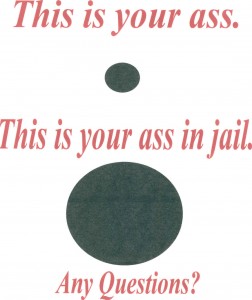At the head of a large army [Po-ts’ai] was besieging Ch’ang-she, which was held by Huang-fu Sung. The garrison was very small, and a general feeling of nervousness pervaded the ranks; so Huang-fu Sung called his officers together and said: “In war, there are various indirect methods of attack, and numbers do not count for everything. Now the rebels have pitched their camp in the midst of thick grass which will easily burn when the wind blows. If we set fire to it at night, they will be thrown into panic, and we can make a sortie and attack them on all sides at once, thus emulating the achievement of T’ien Tan.” That same evening, a strong breeze sprang up; so Huang-fu Sung instructed his soldiers to bind reeds together into torches and mount guard on the city walls, after which he sent out a band of daring men, who stealthily made their way through the lines and started the fire with loud shouts and yells. Simultaneously, a glare of light shot up from the city walls, and Huang-fu Sung, sounding his drums, led a rapid charge, which threw the rebels into confusion and put them to headlong flight.
— Sun Tzu, The Art of War, XII.9(4)
I can’t agree less with Grant Robertson’s, response to David Garrett’s latest bit of madness. He says he “doesn’t want to give further oxygen” to Garrett’s “extreme and appalling” views, but that’s exactly what they need: oxygen. At present both Rodney Hide and John Key probably want to forget the fact that Garrett is the ACT party’s Law and Order spokesperson, and that consequently there are no such things as his “personal views” on these topics which are separable from those of the party — he is the ACT party’s mouthpiece on such matters, and the government’s ally. We, the people who elected him and permitted Hide to assign him that role, are entitled to take these views seriously, examine them in the context of other things he has said and done, and the opposition’s job is to prevent anyone from forgetting what this man stands for, and how far his definition of “reasonable” is from that of the wider public. From now until he’s ejected from parliament, Garrett should not be able to show his face to the public without a graphic reminder of the fact that he think homosexuality is morally equivalent to paedophilia; that he favours policy (now implemented) which means more prisoners will suffer rape as a consequence of their punishment; and that he thinks poor brown parents should be sterilised. He must be required to either defend his views robustly, or forced to issue yet another humiliating public apology; and both ACT and the government must be required to defend their association with him, or forced to dissociate, demote or publicly censure him.
The instinct for the opposition to deny a topic like this the spotlight only makes political sense when the opposition is vulnerable on the issue; when they fear it could result in a populist backlash against them. Even then, the principles at stake mean a very strong backlash would be required to justify restraint on simple pragmatic grounds. There is no prospect of such a backlash in this case: as Grant says, the statement is “extreme and appalling”. Does Grant think his own sense of what is extreme and appalling differs so much from that of the electorate that they will not agree with him? The worst possible course of action for ACT and the government is to allow this topic to remain at the top of the political agenda for as long as possible. Failing to even try to keep it there shows a lack of political nerve on the part of the opposition; a continuation of the failed strategy employed prior to the election, which Key won in no small part because the very people who should be fighting against him bolstered his public image as a mild, simple, non-threatening chap. Genuine threats must be neither mocked or minimised; the “extreme and appalling” should not be laughed off or left unchallenged. This is the sort of weak-kneed liberal wimpishness and lack of rectitude which leads many voters to mistrust parties on the left, and cleave to parties and leaders whose convictions are firm and forthrightly held. The good and the just does not speak for itself, much as we might wish it would. It requires champions to stand for it, and evil truimphs when those champions fail to stand and fight.
To do so is not the “dirty” personalisation of politics: the character and views of a man who sits on the Law and Order select committee, and in the future could conceivably hold a warrant for Justice, Corrections or Police are perfectly legitimate matters for political debate, which speak both to his ability to represent the interests of New Zealanders and to the quality of the processes and people which allowed him to attain such a position.
The Garrett Solution, as I’ve argued elsewhere, contradicts almost everything the small-government right claims to stand for. After a decade of howling about “Nanny State in the bedroom” and “social engineering” we now see that their erstwhile objections to both these things were not principled, as they claimed, but were in fact just objections on the merits. Social engineering is wrong, they say, unless it’s at the genetic level. It’s also not new: this sort of thing was enthusiastically embraced during the last government by the more unhinged members of the extreme right, and now it has gone mainstream.
The topic of eugenics is the strongest symbolic matter introduced to the political sphere by any participant this term; it is a topic on which the right can only lose, and introduced by someone who is already vulnerable. The grass is high around the government’s camp, the fire is set by one of their own: now, if they are to gain an advantage, the opposition must fan the flames and beat the drums.
L


 DPF published two posts yesterday about prominent lefties comparing righties to fascists:
DPF published two posts yesterday about prominent lefties comparing righties to fascists: 
